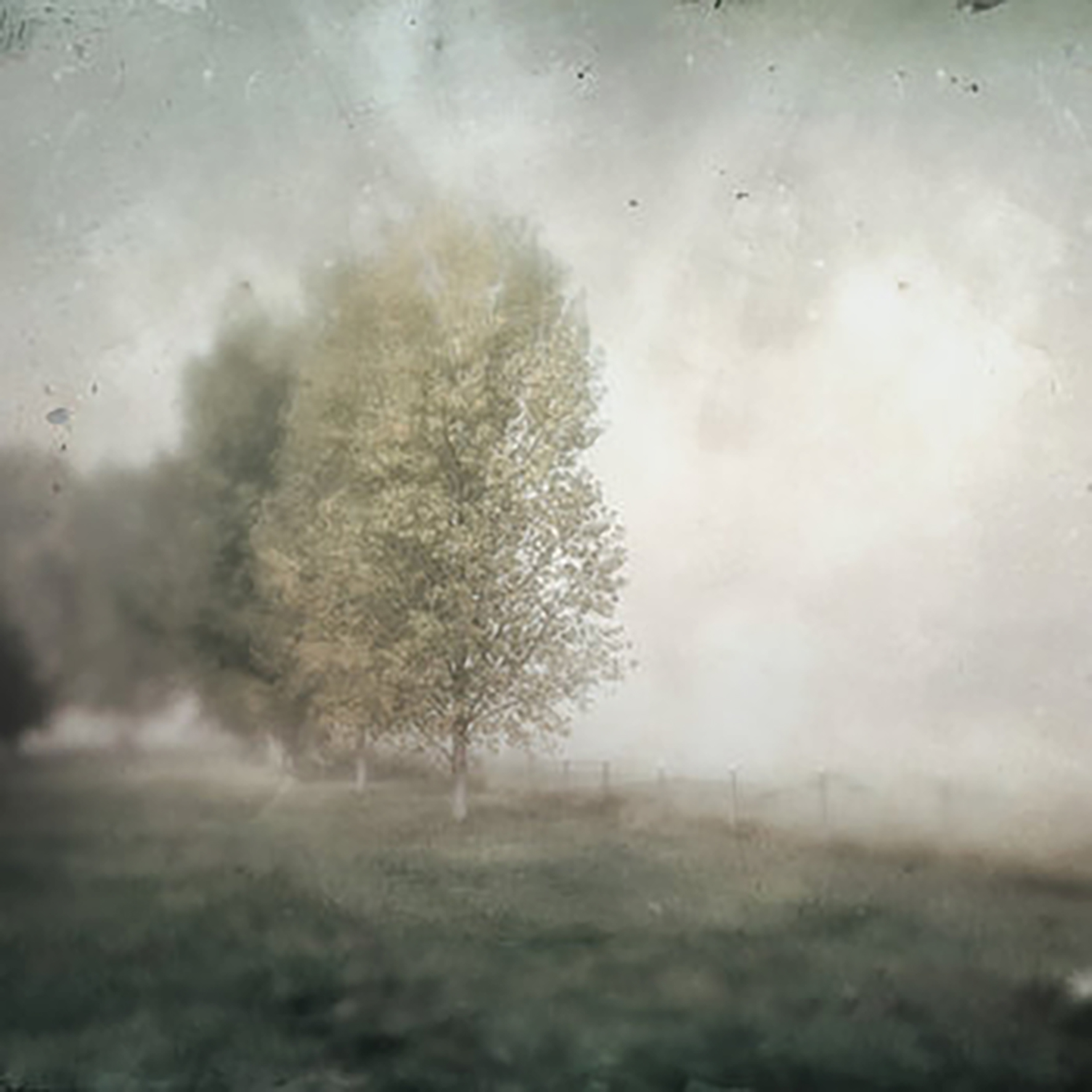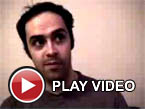William Ryan Fritch, "Deceptive Cadence: Music For Film Vol. I & Vol. II"
 I have only been familiar with William Ryan Fritch's work for a couple of years, but he became one of my absolute favorite artists almost instantly. In fact, I have such unshakable faith in his vision that I even pounced on this lavish collection of works for film despite my similarly unshakable apathy towards soundtrack albums. My rational was that his first major release in two years had to be something truly special and the handful of pieces released in advance of the album seemed to bear that out. As it happens, the rest of this double album is every bit as wonderful as those teasers: Deceptive Cadence may very well be Fritch’s career-defining masterpiece. It certainly deserves to be, as Fritch approached it as a true labor of love, tirelessly revisiting, reworking, and paring down years of disparate projects until he had a gorgeously bittersweet tour de force of sublime grandeur.
I have only been familiar with William Ryan Fritch's work for a couple of years, but he became one of my absolute favorite artists almost instantly. In fact, I have such unshakable faith in his vision that I even pounced on this lavish collection of works for film despite my similarly unshakable apathy towards soundtrack albums. My rational was that his first major release in two years had to be something truly special and the handful of pieces released in advance of the album seemed to bear that out. As it happens, the rest of this double album is every bit as wonderful as those teasers: Deceptive Cadence may very well be Fritch’s career-defining masterpiece. It certainly deserves to be, as Fritch approached it as a true labor of love, tirelessly revisiting, reworking, and paring down years of disparate projects until he had a gorgeously bittersweet tour de force of sublime grandeur.
The first volume of Deceptive Cadence arguably dates back from 2015, as many of these pieces were modestly released in digital-only format as Music For Film Vol. I.This latest incarnation has undergone quite a dramatic transformation between then and now though, as Fritch "dove back into Volume I, carving away the fat, leaving only the most breathtaking pieces from the original and replacing the rest with assuredly more mature and enduring compositions."Remarkably, that description is actually a bit of an understatement, as I estimate that at least half of that album did not survive Fritch's curatorial bloodbath.As for the remaining pieces, they have been re-edited, re-sequenced, and interspersed with newer works to form a beautifully flowing and coherent whole.That certainly seems like a quixotically labor-intensive endeavor, but I wish more artists would follow suit: for the purposes of this album, it does not matter when a piece was recorded or what film it may have appeared in.None of that information is even provided and that makes perfect sense to me.These pieces have all served their original purpose in the work of others, so now Fritch is free and willing to chop them up to suit a vision that is his alone.In the case of Deceptive Cadence, that vision is a kind of rustic Americana filled with rippling, sun-dappled arpeggios that blossom into boldly churning string melodies.The finest example of that sensibility is probably "A Renewed Sense," as cello and violin themes dance and intertwine en route to a swooning crescendo that verges on the rapturous.The soaring and poignant "Mending What We've Cleft" achieves a similar feat, but nearly every piece embodies the elusive lightness of touch necessary to achieve aching beauty and tenderness without ever erring into melancholy, bombast, or saccharine prettiness.There are easily three or four other pieces in the first volume that qualify as legitimate highlights (and zero pieces that I would skip).It is an absolute feast of lightness, warmth, and memorable melodies.
While Deceptive Cadence's second half seems to be composed entirely of more recent material, the transition between the two albums is very much a seamless one.In fact, the entirety of this collection feels like a hallucinatory director's cut of Westworld with all of the violence and plot excised to leave only a poetic and impressionist swirl of warm memories and majestic scenery.There is definitely more of an undercurrent of darkness with the newer material though, as well as a more varied approach to mood and structure.I would not necessarily say that it is more sophisticated, but it does feel like it has more of a deliberate arc and pace: it would not be completely crazy to characterize Vol. I as a melody-driven singles collection and Vol. II as its more abstract and atmospheric shadow.There are some notably exceptions though.The most striking one is "Ricochet," which begins with a half-thorny/half-twinkling jangle of overlapping mandolins that elegantly and seamlessly transforms into something resembling a Wild West wedding dance.Fritch does not stop there, however, and "Ricochet" continues to organically grow and evolve until it finally explodes into a soaring and vivid heaven of simultaneous ascending and descending melodies.Regrettably, it ends all too soon for my liking, but that is probably for the best as I probably would have died from pure joy if it had gone on any longer than three minutes.Elsewhere, I was struck by the haunting cello melody that rises from the warmly languorous dreamscape of "Gut Level.""Dumbstruck" is a highlight as well, as its early drones blossom into a churning and serpentine dance of darkly lovely strings. In general, however, the second volume feels like a sustained reverie, albeit one regularly punctuated by alternating interludes of brooding melody and shimmering, fluttering radiance.
I enjoy both volumes quite a bit, but it is the first volume that I could probably play in an infinite loop for days without ever growing weary of it.When he is at his best, Fritch's melodies and themes feel like a divine choreography that fluidly and airily swirls, sways, and dances, making it seem like transcending and dissolving conventional structure is the most natural and effortless thing in the world.Fritch is the rarest form of iconoclast: the kind who carves out a truly wonderful and distinctive niche solely by bringing together obvious threads that few others have managed to convincingly combine before (and executing that feat masterfully).
In a way, Deceptive Cadence feels like a glimpse of an alternate timeline in which modern classical music never became mired in increasingly challenging sounds and ambitious concepts.Instead, it devotedly remained in pursuit of pure beauty, but learned a few things along the way from the looseness, simplicity, and soul of Bob Dylan and the starry-eyed romanticism of vintage Hollywood cinema.Fritch is not shy about exploiting his formidable gifts for arrangement or production enhancements, yet he has an uncanny intuition for allowing just the right themes to remain raw enough to make a direct emotional impact.These pieces often sound like the work of tight traditional folk ensemble that has been elevated into something unnaturally lush, layered, and dreamlike by the hands of a great drone artist who has been very careful not to lose their earthy, lyrical essence.Moreover, the bulk of Deceptive Cadence resembles a soundtrack only stylistically, evoking a vivid, living world on its own rather than feeling like one decontextualized aspect of a larger work.This is an ambitious, complete, and extraordinary work all by itself.If anything else comes along in the next six months to unseat Deceptive Cadence as one of my favorite albums of the year, it will have to be one hell of a revelatory release.
Samples can be found here.



